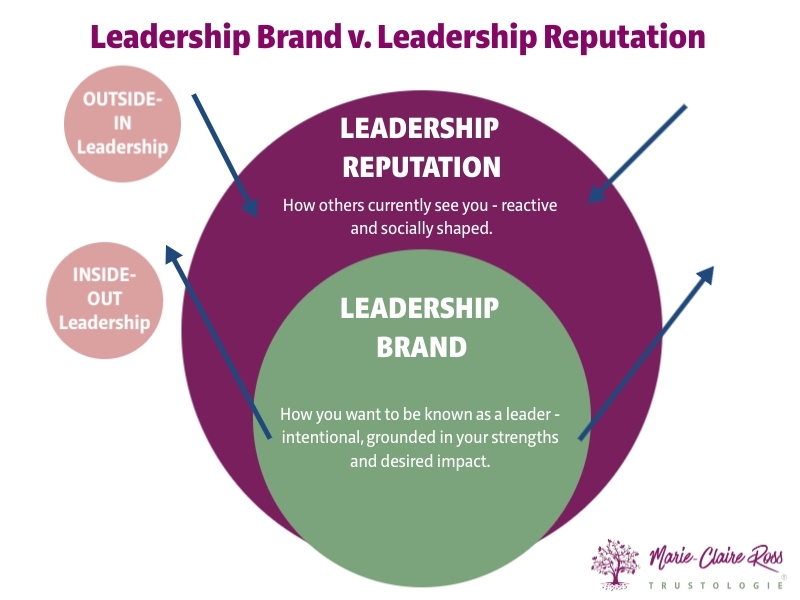6 Essential Executive Skills That Will Make You Unstoppable in 2026
The workplace is evolving at a pace few previous generations have seen and 2026 will mark a turning point. The Future of Work is blended, not hybrid....
Develop leaders, strengthen executive teams and gain deep insights with assessments designed to accelerate trust and performance.

Transform how your leaders think and perform with keynotes that spark connection, trust and high-performance cultures.

Explore practical tools, thought-leadership and resources to help you build trusted, high-performing teams.

Trustologie® is a leadership development consultancy founded by Marie-Claire Ross, specialising in helping executives and managers build high-trust, high-performing teams.

4 min read
Marie-Claire Ross : March 29, 2022

One of the interesting things I get to do is undertake stakeholder interviews with various members of the leadership team and other stakeholders (such as their employees or customers). I get to hear lots of different perspectives. But it can be fascinating when my research leads me to one person who is pretty much causing all the issues. It can be eye-opening interviewing them (or coaching them) and discover their slightly delusional perspective of what is really happening.
According to Carter Cast, the ex-CEO of Walmart, he found that around 50%-67% of all managers and leaders will encounter career derailment. It all comes down to personal blind spots. Leaders were unaware of a debilitating weakness in their interpersonal behaviours. Even after, they were confronted with the evidence, they were unwilling to make adjustments.
If you are really wanting to excel in your leadership, then it's important to be really honest about how other people react to you. The following are red flags that you are not a good fit for the leadership team. It can be so easy to assume that people trust you, but how people interact with you, can give some important feedback that you have some work to do. Better to be aware of them now, than to hear about them in a performance evaluation.
With that in mind, here are the five most common warning signs that other leaders might not trust you:
1. Other leaders don't seem to like you - As someone who wasn't popular at school, I know what it's like to be shunned by others. It's not pleasant.
When other executives fail to greet you, don't want to sit next to you in leadership team meetings or avoid helping you, it can be distressing. But is it because they aren't nice people or is it because they have decided you aren't nice?
If you are in a leadership team that has a healthy culture and really cares about people, then if people don't like you, there is usually a reason. And that is, you don't share the same values.
As Jim Collins said in the book, Good to Great, "Those who do not have a predisposition to sharing the core values get ejected like a virus, escorted right out the door by the organizational antibodies."
Leaders who aren't trusted will often be the only one complaining about the behaviours of people in the leadership team. Unfortunately, that's a sign that others aren't feeling that you are a good fit for the culture.
Seems cruel - but it's better to move on and be in a culture that accepts you than to always be pushing against popular opinion.
2. People get fired that you really liked - One of the interesting things in my stakeholder interviews is that people will tell me about a horrible boss that got fired and how badly they were treated. They are still pretty scarred by the event. Quite often there are tears.
And then I will talk to an executive who is still sad that their friend at work that got fired. The very person that everyone else is still crying about. They will try and convince me how they were a good person who was unfairly treated by the organisation. Any legal case against their misconduct is strangely omitted in the discussion.
Just like the previous warning sign, this one really is an indication that you are not a fit for the culture. If you find that your peers are being fired for treating people badly, and you don't agree, then it might be time to move on (and have a good look at your own interactions).
3. People don't want to share their problems with you - Not many leaders realise that when people aren't sharing problems with them, it's not because they have everything under control.
It's because they don't trust them to be supportive or to offer any great advice. You know you are a trusted member of your leadership team when people share their personal issues, work frustrations or even ask you for help. Even better, is when employees outside the leadership team also do the same thing.
4. People are afraid to challenge you - It's hard to be self-aware, if you always shut down discourse around what you can improve. Fragile leaders will react quite defensively when their behaviours are actioned or questioned. Sometimes this can be such an angry reaction that others are too fearful to question again.
One of the trademark behaviours of someone with narcissistic personality disorder is that they struggle with accountability. They are unable to honestly own their feelings, apologise, face mistakes and make amends. Blaming others and turning things around is their go-to. Getting angry when they are questioned is also common.
A narcissist can't change. So if you believe that you are not narcissistic, then work on ensuring that people can challenge you and that you take action on their feedback. It will also go a long way to improving your self-awareness (another thing that narcissists aren't very good at).
5. People work around you - A lot of high performing executives hate to be slowed down. In one organisation I worked with, the head of marketing despised the happy-go-lucky head of R&D. The reason was that the marketing guy needed new products brought to market fast to introduce into a popular hardware chain. The R&D scientist was still operating like he was in a pharmaceutical lab where he had years to painstakingly develop and test products. This lack of understanding of one another's perspectives ensured that other departments also didn't trust the head of R&D. It was all because he couldn't be relied upon to deliver work on time. Getting that right improves things enormously. Make sure you always deliver to other teams, at a high standard, to ensure that you are a trusted member of the leadership team.
If you've still made it to reading the last point, good work! You are probably not a narcissist and you can improve your self-awareness and career prospects. In my experience, leaders who work at being more accepting of feedback and delivering at a better standard, can easily turn a low trust situation around.
But those who don't have the right behaviours and interactions to play nicely with others will always struggle in healthy workplace cultures. The main reason is that they lack the ability to truly reflect on their negative behaviours and actions, in order to improve them. Or as one toxic executive (that was labelled 'uncoachable') said to me "If I had to really think about that and do something about it, it would take years of therapy."
Exactly.

The workplace is evolving at a pace few previous generations have seen and 2026 will mark a turning point. The Future of Work is blended, not hybrid....

Many leaders jump into a leadership position excited by the opportunity to help others and perform at a higher level.

What makes a good team leader isn’t just about having authority or getting tasks done - it’s about the ability to create an environment where people...
A quality is part of our personality that comes naturally to us. For example, you might think of one of your friends as 'always being generous'....

How the safety speech is written depends upon it's form of delivery (eg: written speech for the annual report, face to face presentation to staff or...

When we were all young children, we all used to bug our parents with lots of "Why?" questions. And while this can test even the calmest of parents,...